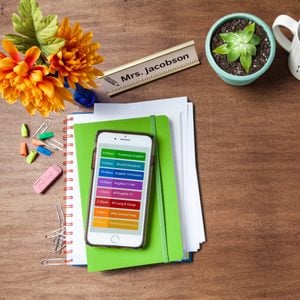Instead of Going to College, I Read These Books
Updated: Jan. 17, 2023
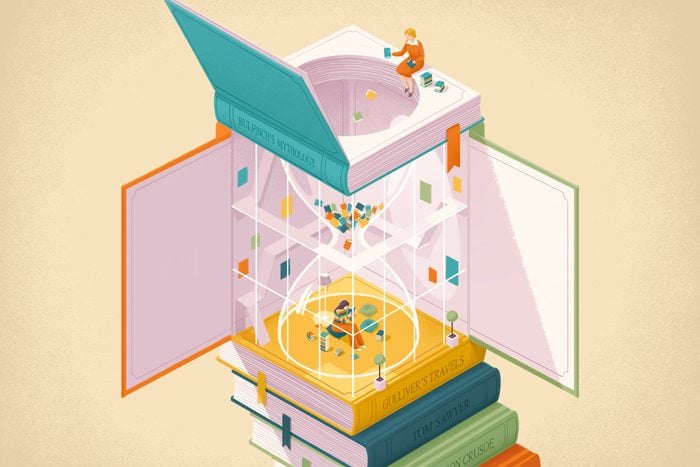
For a woman whose life took another path, a teacher’s reading list taught her everything she needed to know.
Steph Clemence always intended to go to college. But life has a tendency to throw obstacles in the way. Growing up, she led a nomadic life because her mother, who divorced and remarried several times, was always on the move. As a result, Steph attended five different kindergarten programs. By the time she was a senior in high school, Steph had lived in 25 places.
Still, she had good grades and considered herself college bound. But when her stepfather died tragically in a car accident, leaving her mother to support three daughters on a modest income, paying for college became out of the question.
Join the free Reader’s Digest Book Club for great reads, monthly discussions, author Q&As and a community of book lovers.
Stumbling upon an idea
Around that time, Steph’s boyfriend, Gary Frye, enlisted in the Navy, a four-year commitment that would send him overseas. Before he shipped out, the couple tied the knot.
“We got married on July 7, and Gary left on August 18,” says Steph. “I dropped him off at the bus station and cried all the way home.”
With her husband at sea, Steph lived with her family, found a job, and tried to figure out what to do with a life that had deviated so from the plan she’d carefully laid out.
The answer came one afternoon when she was cleaning her bedroom closet. Inside a box of files she spotted a thick folder on which she’d written “High School Keepsakes.” Tucked in among memorabilia and photos from her time at McKenzie High School in Vida, Oregon, Steph found two stapled mimeographed pages from the English teacher she’d had her junior year, Dorothy Clark.
More Teacher Stories
|
Mrs. Clark was small and animated, given to waving her hands when she spoke. One afternoon, she walked into the classroom carrying a stack of stapled papers. She instructed the students in the front of each row of desks to take one and pass the rest to the students behind them. The handout was titled “Mrs. Clark’s Book List.” It wasn’t homework, the teacher announced, but it could be a road map.
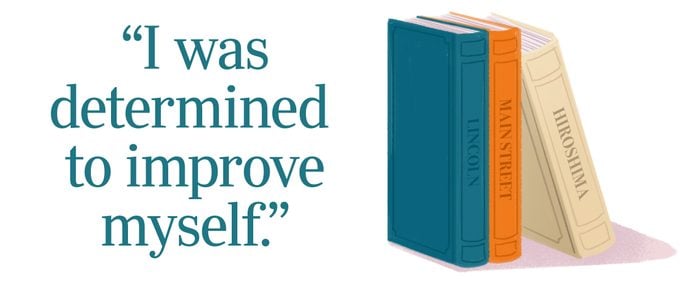
“Some of you might not go on to higher education,” Mrs. Clark said, “but you can continue to learn.” She’d spent months creating a list of 153 fiction and nonfiction books, plays, and short stories from the United States and abroad, covering science, history, economics, politics, and literature. It would, she believed, form the equivalent of two years at a liberal arts college.
“She knew the income levels of the kids in my high school,” says Steph. “Working-class and logging families. She knew most of us would not go to college. She was right. But she knew we could continue to learn after high school. She was also right about that.”
Steph studied the list. The first book was Bulfinch’s Mythology. She flipped the page to see the last book: The Alexandria Quartet by Lawrence Durrell.
And so it began. It was 1970. “I was hopeful and determined to improve myself,” Steph says. She had always read for pleasure—magazines, true-crime books, mysteries, and romance novels. Now she would add Mrs. Clark’s suggestions to the mix. Starting at the top, she would read every book in the order they appeared.
A passion for learning
That night she wrote her husband, who was stationed in the Mediterranean, to tell him about her plan. When she eventually went to college, she told him, she’d be further along than the other freshmen.
Four years later, he left the Navy and enrolled in college while Steph worked a variety of jobs. She helped pay his tuition, and she kept reading.
The only other people she told about her goal were her mother, her sister, and a few friends. She assumed that people would find little value in her journey. But she felt differently. Each of those books sparked her passion to learn more about the person, subject matter, or time in history. That made her look for other books that weren’t on the list, hoping to deepen her knowledge.
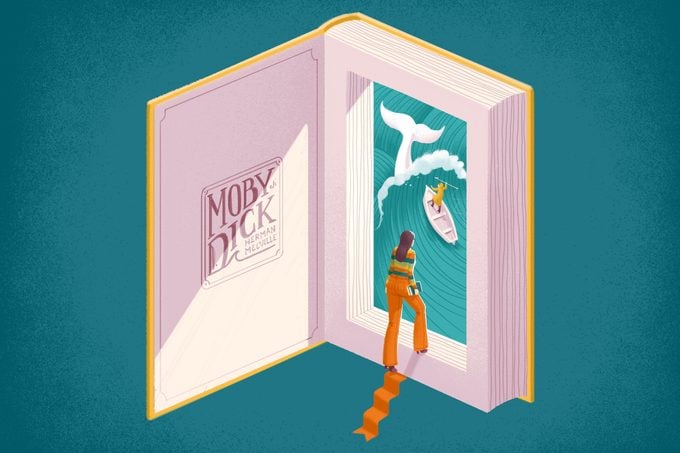
Over the years, the Fryes, who chose not to have children, moved around a lot, living in 16 homes in multiple states. Steph buried her mother. She and Gary lost one home, scrimped, saved, and bought another. Gary retired as the property manager for a hospital in Portland, Oregon. Then Steph retired as an office manager for a dentist.
Through it all, the reading list was a constant in her life, traveling with her even on vacations so she could refer to it while prowling flea markets and used bookstores for the next book on the list. (She never bought the books in advance; she looked for the title only when it was the next one up.) When the original list wore out, she typed up a new copy. And then another.
“Finding the next book on the list was fun, like a treasure hunt,” says Steph. Whenever she couldn’t find a used copy of a book, she’d mark the title with a dash. If she couldn’t find it in the library, she’d use a circle. While she kept looking, she’d read other books that weren’t on the list.
“The only book I skipped over was the Bible,” says Steph. “I’d read parts of it during my life, and I figured I’d eventually get to it. Then 9/11 happened. That very day I began reading the Bible, and I read it from start to finish. I wanted to get a better understanding of mankind.”
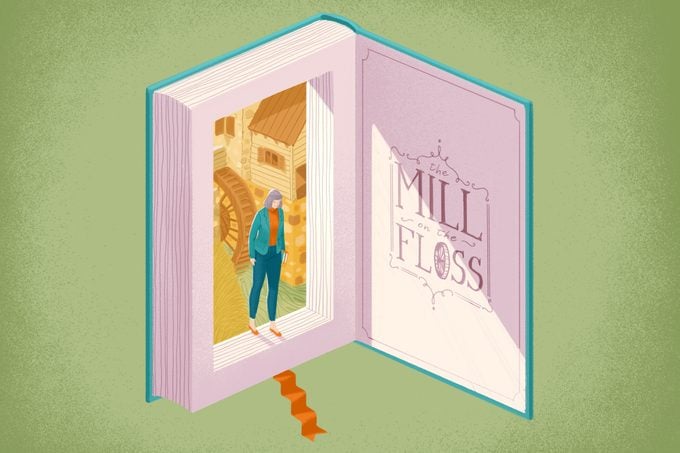
Unlike many people who crack open a book in bed before it’s time to sleep, Steph prefers to read while sitting in a chair with a cup of coffee by her side. She doesn’t race through a book, as she wants to savor the experience.
“Reading these books is an emotional and intellectual experience,” she says. “What am I going to discover? How will my heart change?”
Her favorite from the list was The Human Comedy by William Saroyan. It’s about a fatherless boy growing up during World War II. “It made me think and feel. It’s heartwarming. I’ve read it three times,” she says.
Her least favorite: Karl Marx’s critique of capitalism, Capital (Das Kapital). Her critique: “It’s so dry. Reading it was like working on a complicated math problem.”
The list goes on
Now Steph is 70, and she never did get to college. But she has only four books left to read from the list. She expects to complete them sometime in 2023.
“Each of the books has added something to who I am and how I see the world,” she says. “They’ve opened so many doors for me about race, the environment, history, and politics. I’m no expert, but I now have the background to see why things happened and what it might mean.”
She wishes she could thank Mrs. Clark. She wishes she could share with her teacher how reading the works on her list has changed her life.
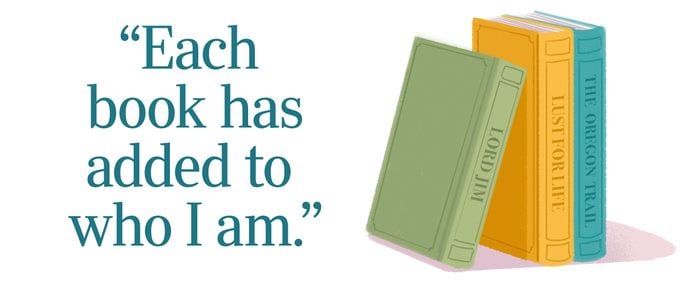
In Madame Curie, the author, Eve Curie, writes: “Each of us must work for his own improvement, and at the same time share a general responsibility for all humanity, our particular duty being to aid those to whom we think we can be most useful.”
The way Steph Frye sees it, Mrs. Clark felt it was her particular duty to help young students navigate a changing and ever more complicated world. And thanks to a simple classroom handout, at least one young woman who couldn’t afford college was the better for it.
“It was never just a list I got from some teacher in school,” says Steph. “It’s always been Mrs. Clark’s Book List.”


